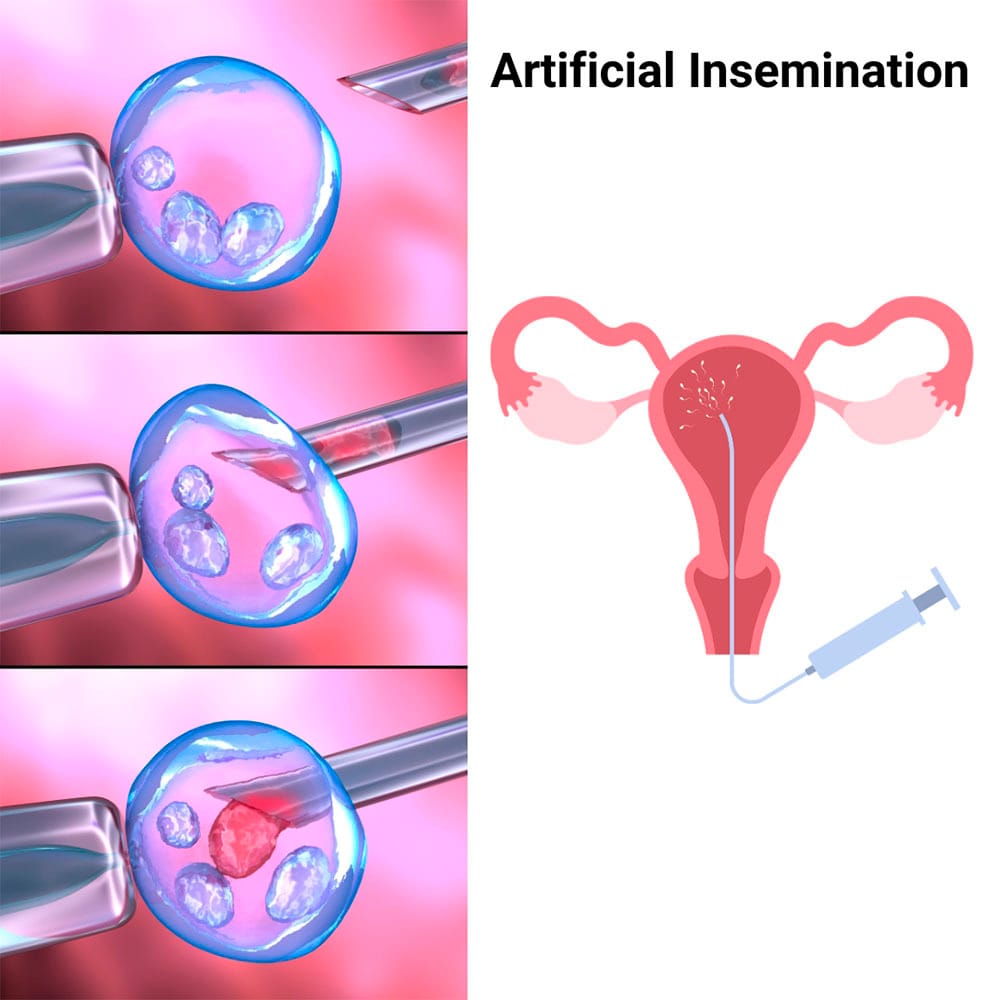What Is Artificial Insemination?
 Artificial insemination refers to any number of ways that medical science can help you conceive if you’re having problems getting pregnant. Although most procedures and treatments are intrusive, some are more so than others.
Artificial insemination refers to any number of ways that medical science can help you conceive if you’re having problems getting pregnant. Although most procedures and treatments are intrusive, some are more so than others.
Options for artificial insemination include:
- In vitro fertilization (IVF)
- Intrauterine insemination (IUI)
- Intracytoplasmic sperm injection (ICSI)
For any type of artificial insemination, it’s necessary to know when you ovulate. Some treatments for infertility are medications to increase the number of eggs that are ovulated each month, called ovulation stimulation. As with any medical procedure, there are risks associated with artificial insemination, but you can rest assured that Dr. Felix Cohen and his talented team at Cohen Medical Practice (CMP) reduces those risks and puts you at ease through the entire process. His women’s health expertise can help you to solve your fertility issues.
What Causes Infertility?
Infertility is caused by many things. It can be on the part of the male or the female or both parties. It can be as simple as obesity, or as complicated as problems with your hypothalamus. Fertility is a fine balance of hormones, health and timing.
Other things that may hinder a couple’s ability to get pregnant include:
- Exposure to chemicals or radiation
- Substance abuse
- Stress that affects ovulation in women and sperm counts in men
- Untreated gynecological conditions like uterine prolapse
Fertility is a complex process, and if one piece is out of place or broken, that can hinder the delicate balance. If you’re experiencing infertility, your CMP fertility doctor may suggest lifestyle and diet changes to better your chances of pregnancy.
How Can I Reduce My Risk of Infertility?
There are many things to try to improve your fertility. The first item should be your and your partner’s physical health. Stopping smoking is an enormous step towards your fertility, and that’s for all parties. An average of 13 to 15 percent of infertility cases are due to smoking. Maintaining a healthy weight is also important.
Other things that may decrease your fertility include:
- Over exercising
- Infections, especially sexually transmitted infections
- Auto-immune disorders, such as lupus
Nealy one-third of all infertility problems are centered around the female, one-third involve the male party and one-third concern both parties. Untreated uterine bleeding and endometriosis in women are also common factors that affect fertility, as is injury to the male genitalia or hormone disorders in any gender.
What Is Intrauterine Insemination?
IUI is a fertilization technique where the sperm is placed right into the uterus. It gets the sperm closer access to the egg when you ovulate. An IUI procedure is a less expensive type of fertilization, therefore usually the first method to be tried. It can be done in a doctor’s office or clinic and only takes five to ten minutes.
There are a few steps to this procedure that include:
- Collecting a sperm sample from a partner or using donor semen
- Washing the sperm, which clears away excess fluid and chemicals, leaving only healthy sperm
- Inserting the washed sperm into your uterus
While IUI does increase your chance of becoming pregnant, there are no guarantees. During IUI treatment, a thin tube is placed through the vagina and cervix into the uterus. The sperm is then dispensed from a syringe, through the tube, directly into the uterus. It’s relatively painless, although you may experience light cramping.
What is In Vitro Fertilization?
IVF is another fertilization technique that involves manipulating sperm and eggs scientifically and placing the resulting embryo into your uterus. This has a better chance of being successful than IUI, because it’s already known that the egg is fertilized.
IVF has a certain sequence of events that include:
- Retrieving the eggs from your ovaries
- Placing the eggs with the washed sperm in a petri dish and waiting for the magic to happen
- Inserting one, two or three fertilized eggs into the uterus
Even though IVF is more promising than IUI treatment, there is always uncertainty. Intracytoplasmic sperm injection can be done during IVF. The sperm is directly injected into the egg with this additional procedure. The odds of conceiving are better with ICSI, and that’s reflected in additional costs.
What Are the Complications Associated with Artificial Insemination?
No medical treatments or procedures are without risk, and artificial insemination is no exception. Your CMP physician discusses your personal risks and what you can do to mitigate any risks, such as quitting smoking.
Some common problems that come up include:
- Greater chance of multiple births
- Ectopic pregnancy when the embryo attaches to the outer portion of the uterus
- Ovarian hyperstimulation, which cause painful ovaries after you’ve been taking fertility medications
For people who are willing to do anything to get pregnant, the risks associated with fertility treatment are worth it. No fertility treatment will give you a 100 percent guarantee, but the specialists at Cohen Medical Practice (CMP) are experts in the field, which greatly reduces the odds of there being any side effects from whatever type of intrauterine insemination you choose. For the best results, contact Dr. Felix Cohen. He has the experience in women’s health and gynecology to give you the best possible outcome and treatment.

